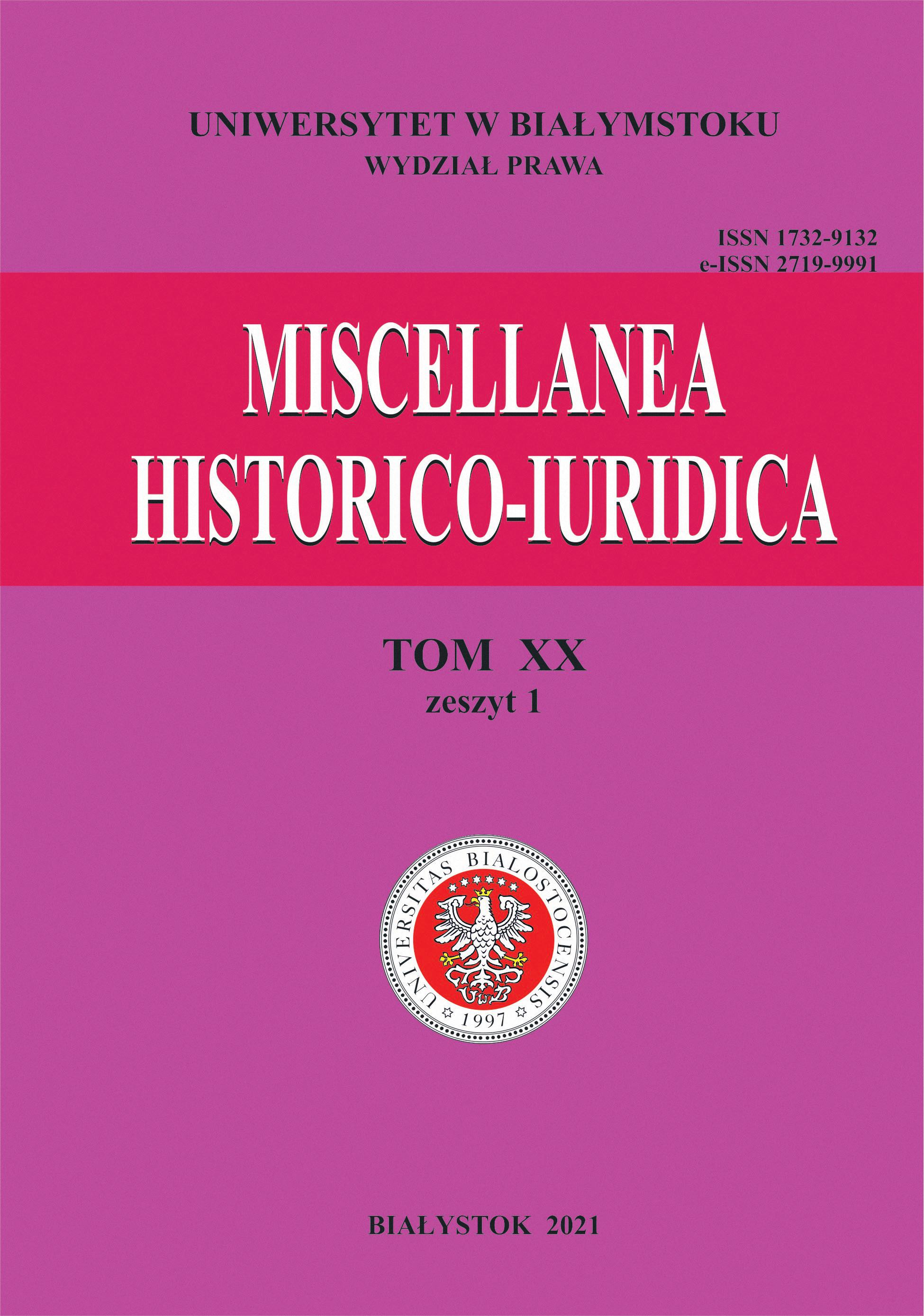Z badań nad białostockim epizodem w biografii Rafała Lemkina
From the Research on the Białystok Episode of the Rafał Lemkin’s Biography
Author(s): Michał Paweł StokowskiSubject(s): History, Local History / Microhistory
Published by: Wydawnictwo Uniwersytetu w Białymstoku
Keywords: Rafał Lemkin; genocide; crime against humanity; Bialystok
Summary/Abstract: Rafał Lemkin became famous in historiography as the creator of the concept of genocide (genocide). This Polish lawyer of Jewish origin, graduated from the Faculty of Law at the University of Jan Kazimierz in Lviv and was a pupil of the outstanding Polish criminal lawyer Juliusz Makarewicz. From his student days, he became interested in the lack of legal regulations in the field of criminal liability for committing mass murders on a specific national or ethnic group. An important impulse for the development of this thought for the young Lemkin were the famous trials of the assassins Talaat Pasha, responsible for the slaughter of Armenians during the Great War, and Symon Petlura, charged with the responsibility for pogroms against Jews in Ukraine. Before the outbreak of World War II, Rafał Lemkin, as part of his activity in the Polish section of the International Criminal Law Association, presented at a conference in Madrid in 1933 the first visions of the concept of international criminal jurisdiction of genocide offenses. After the outbreak of World War II and his escape to the United States, he started working in the War Department and as a university lecturer. In 1944, he published his opus magnum – “The Axis Rule in Occupied Europe”, where he formulated and accurately described the concept of genocide as a crime of international law. Lemkin’s idea was quickly appreciated. As early as December 1946, the UN General Assembly passed a resolution recognizing genocide as a crime of international law, and two years later it adopted the Convention on the Prevention and Punishment of the Crime of Genocide. He described his extremely interesting life in the autobiography entitled “Totally Unofficial”, which was translated and published in Poland in 2018. Rafał Lemkin describes many details of his life, but omits the period of his residence in Białystok, where he allegedly passed his matriculation exams in 1919, and his student days at the Jagiellonian University, when he gained the necessary experience and knowledge in legal fields to help him develop the concept of criminalisation of genocide.
Journal: Miscellanea Historico-Iuridica
- Issue Year: 20/2021
- Issue No: 1
- Page Range: 177-186
- Page Count: 10
- Language: Polish

